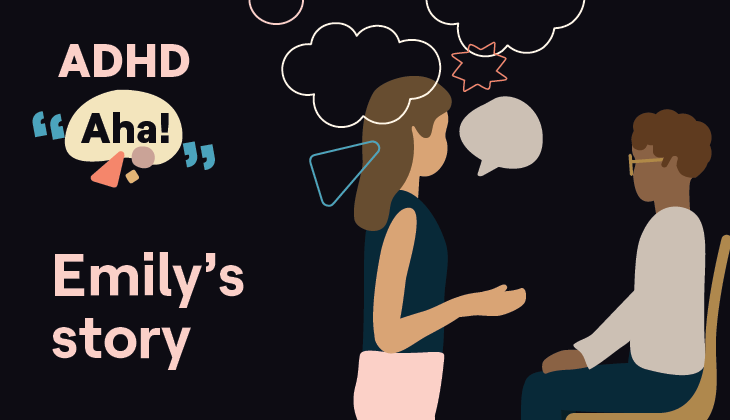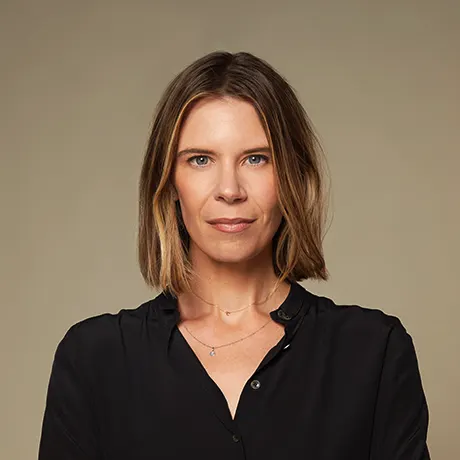Stay in the know
All our latest podcasts delivered right to your inbox.
Emily Unity’s challenges with executive function and sensory processing seemed very similar to those of their mental health clients with ADHD. Emily does peer support work for young people in Australia. Ultimately, it was their interactions with other youth with ADHD that led to their own ADHD diagnosis.
Emily talks about masking their ADHD symptoms and feeling like a failure to their traditional Asian family. They also discuss how stereotypes of Asian people as a model minority made them feel shame and guilt. And they share how they finally felt seen and “broke the mask” when they were diagnosed with ADHD.
Related resources
Emily’s article: How culture shaped my ADHD diagnosis
The difference between ADHD and sensory processing challenges
Episode transcript
Emily: I was very honored to work with a lot of really diverse young people, particularly a lot of young people that have been diagnosed with ADHD. When they shared their stories with me, that was the first time that I really, really felt understood. And I was really able to relate to what they were saying.
And I was like, "Yeah, that makes so much sense to me. Like, I really relate to that. Here's an example of how I also had that experience," and they were like, "OK, you should probably check that out because you potentially have ADHD." And it was maybe, like, the 20th person I've worked with that had said that, that I was like, "OK, I should probably get this checked out."
Laura: From the Understood Podcast Network, this is "ADHD Aha," a podcast where people share the moment when it finally clicked that they or someone they know has ADHD. My name is Laura Key. I'm the editorial director here at Understood. And as someone who's had my own ADHD "aha" moment, I'll be your host.
I'm here today with Emily Unity. Emily is a young person who lives in Australia, and she refers to herself as a miscellaneous blob. I'll let her tell you why that is.
Emily: Hi! Thanks so much for having me. My name is Emily. My pronouns are she/they. I definitely feel like I am a miscellaneous blob because there's just so much about me that doesn't necessarily discretely fit into certain categories. I've just found myself to be really interested in the world in general and really attracted to very weird, niche things that don't really have anything in common. So I'm culturally diverse, and sexual and gender diverse, and also neurodiverse. But also, like, even career-wise, I've been an artist and an engineer, and now I'm a mental health advocate. And this is just me, just now, and so if you talk to me in a week, maybe everything will be different. But I just love being a weird blob and existing in spaces that are new. And it's just, yeah, not, not really able to describe myself in a very succinct way.
Laura: I love that. So why don't you tell our listeners what it is that you do?
Emily: So about 50 percent of my work is, like, policy advocacy, but I'd say the other 50 percent is peer work. So I've always been really passionate about mental health, and I've been volunteering since a young age. And when I went and did my studies in, like, postgrad psych, I found that it was a little bit too rigid for me or didn't quite sit with me too well, so I went in and found other alternative things of therapy.
And one of the pathways that I went down was peer work. And peer work essentially is when you have a lived experience of a mental illness and you work alongside someone else that has that lived experience as well. And it's much more mutual than a psychologist and patient relationship, like, you're working with each other, you're walking alongside each other, and your journey, like, neither of you, uh, recovered in a binary sense. You're consistently working through things, and it's very reciprocal and lovely.
I found that, like, in my journey, it was definitely such a big catalyst for me to find other people that really understood what I was feeling because they had lived it and were still living it. And that was such a game changer for me. Instead of talking to someone who felt like they were trying to fix me or felt like they didn't quite get it, it's been absolutely game changing for me and apparently game changing for a lot of the young people that I work in.
Laura: And through that work, you actually started to hear a lot from clients with ADHD, is that right?
Emily: Yeah, definitely. So I didn't think that I was necessarily neurotypical before peer work, but I was really labeled with, like, certain labels, like depression and anxiety. But through doing peer work, I worked with a number of young people that had diagnoses of ADHD and were in, like, quite formal treatment settings. And it was then that they were sharing a lot of experiences with me, and what they were saying were a little bit too relatable. So they highly encouraged me to go seek out that pathway for myself.
Laura: So tell me about the too-relatable things. What were you hearing from your clients about ADHD that perked your ears up, so to speak, and made you think, "Is this related to anything that's going on with me?"
Emily: There were, like, these small anecdotal things that they would tell me, particularly with, like, sensory stuff. It was, like, overstimulation of like, "I'm sorry, I can't hear what you're saying over the sound of my shirt tag being itchy and, like, the one strand of hair touching my face." Like, I was like, "Oh yeah, I totally get that." And they're like, that's not tied specifically to my depression or my anxieties; I should probably explore that more. Or, like, understimulation, with trying to go to sleep and then the latent noise in your brain being too loud so you need to put on something else to sort of drown that out. And then lots of, like, executive dysfunction, like, "Let's clean the table, but before that, I should clean the sink, but oh, I need to take the trash out. Oh, I should get changed." And there's just all this, like, stuff going on and then feeling like you can't do any of it because there's too much and not enough happening. And like, I tend to info dump a lot, which I'm currently doing, which is like —
Laura: At my request, thank you.
Emily: Putting a lot of information there, going down these tangents because I'm just so passionate and focused on it. It's just all those small cognitive and sensory things that — it just happened over and over again and hearing my young people's stories and just being able to relate to them way too much. But also being able to see the immense amount of, like, pleasure and understanding that they had within themselves once they got help.
Laura: Tell me a little bit more about the sensory stuff that you're referencing. I think it sounds like sensory overload, right? Like, a lot of information coming in and also, like, seeking out sensory stimulation, which can be pretty common with ADHD. Because, you know, we can look at, like, trouble with self-regulation or trouble switching gears as leading to sensory overload. Tell me a little bit more about your experience with that.
Emily: From a very, very young age, I used to go on ski trips overseas, and my mom would get me to wear gloves because it was freezing. And I just, I really hated wearing gloves because I felt like the world was completely on mute. Like, I just felt like I was experiencing the world through this really thick shield. And that's because I realized later that, like, my touch sensors were dulled, and that was such a big thing for me.
And, like, nowadays to manage even my anxiety and, like, lots of my ADHD, I do a lot of stimming, which is, like, self-stimulatory behavior of trying to regulate my sensory input. So if there's not enough, like, I'll tap my hand a little bit or I'll play with a fidget toy. Or if there's too much, then I'll try to, like, redirect that somewhere else. Sometimes I'll eat some food that's just so good. Like, sometimes I really love peanut butter on toast, but I will not be able to concentrate on what the other person's saying, because I just really love the peanut butter. So yeah, just be aware of that, I think, to be able to communicate with the other person in that environment and be like, I'm really sorry. I do want to listen to what you're saying. Can I please just finish, like, what's happening in my mouth?
For me, there's so many small things. Like, I need to take out the trash. I need to take out the trash, I need to take out the trash, but there's a plane flying overhead and I can hear the sound of the plane, but I need to take out the trash. Because of that, I can't listen to the plane or take out the trash. It's very silly. I feel like that sort of executive dysfunction is something that was really lovely to understand about myself. Because normally I would just beat myself up about it and be like, "You're useless. Like, why can't you do anything? That makes no sense that you can't take out the trash because there's a plane."
But I think it's about being, like, a lot more kind with myself and having that language to really communicate what's going on with me. Because I think for a lot of people around me, they just see me, like, frozen, like, "Ah, I can't do anything," and they can't help and they can't understand.
Laura: You're talking about executive functioning difficulties, which, I have to be honest, Emily, it kind of surprises me. In my interactions with you, I've found you to be one of the most organized people I've ever interacted with.
Emily: Thank you. I highly appreciate that. People tend to say that quite a bit about me. And I think, honestly, it comes from a place of sort of being forced into that. So I was only diagnosed with ADHD quite recently, like in the past couple of years. And I think because I was sort of punished for a lot of the symptoms that I exhibited from ADHD, I hid a lot of it, or I, like, built up different structures in my life to just cope with it. When I hear any sort of constructive criticism, I take it on quite personally. I'm working on that, obviously, but I definitely used to carry a lot of criticism with me all the time.
I was just, like, compulsively trying to organize myself because I felt really awful anytime that I let anyone down with my dysfunction of not being able to remember things, you know. So now I have, like, spreadsheets upon spreadsheets and lists upon lists, just trying to get to that point where I can be accountable for my own actions and people don't have to be, like, let down by me all the time, which I definitely felt a lot when I was younger.
Laura: You felt like you let people down.
Emily: Yeah, intensely.
Laura: Can you say more about that?
Emily: So I grew up sort of surrounded by a lot of expectations. I come from a first-generation immigrant background — like, my mom is a refugee and my dad's a migrant. And I think a lot of people from those types of backgrounds, they come to a new country and they want to just flip that narrative around as quickly as possible. And so, they want the best for their children, they build up this, like, really amazing life. And I grew up so privileged. But in doing so, I had so many expectations on me: to be smart, to be good at everything, to get a good husband and that sort of stuff, to find, like, a privileged, pristine, and prestigious career path and be this perfect human. But I'm so imperfect as a person and now I've come to love that. But at the time, I definitely felt like it was a bad thing. And I just really tried my best to shape myself into something that I wasn't. And I think that's why my ADHD went undiagnosed for so long is because I was really good at that at the time within, like, school settings, and I really benefited from a lot of the routine and structure that was imposed on me. But when that was taken away after school, everything fell apart.
Laura: How did it fall apart?
Emily: Not having, like, class in the morning consistently and not going into all these specific things. I would just not be able to function. It was sort of the first time in my life. Like, I definitely had that ADHD symptom of, if something is not interesting, it is almost physically painful to do. But I had people around me at the time that the expectation and, like, the fear of letting them down was so much louder. And like, I would just be able to push through it, push through the pain, because, like, that pain of letting them down was so much more important to me.
But when I finished school, I was just, like, completely moved away from, like, most things that I knew. And I think because of that, I also moved away from a lot of the active, like, expectations and, like, the criticism. Which is partially a good thing, but also the, like, physical pain that I felt not being able to do something that I wasn't interested in, that was everything. So I fell into, like, a lot of, you know, following the, like, I call it, like, the ADHD demon. And I mean, it in, like, a really wholesome way. I love my ADHD demon, but they would lead me down these, like, really, like, interesting and beautiful pathways, but they were completely nonproductive and definitely derailed the life that other people had sort of set up for me in terms of going and getting, like, this set degree or in doing this job.
I just started pursuing a lot of miscellaneous things, which now I'm entirely grateful for. But at the time it just felt like I wasn't in control. But I was still having, like, the best time.
Laura: Is that related to, um, this idea of masking that you talked about in the article? For our listeners, Emily wrote a beautiful article called "How Culture Affected My ADHD Diagnosis." And in it, she talks about the "model minority mask." There's a quote from your article — you say there was this model minority myth that claimed all Asians are obedient and academically gifted. And you go on to talk about how model minorities are supposed to be quiet and well behaved, and they're meant to be high achievers.
Emily: Yeah. I studied so hard in school. I, like, I really tried. And I think because of that, I ended up being quote-unquote high achieving. But I think at the time, I didn't afford myself that sort of "Hey, you did it" feeling. Because I assumed that if I was good at something, particularly in school, it was just a product of my genetics because I'm Asian. Like, I genuinely just thought that because I'm Asian, I have to be good at this. And anything less than 100 is, like, a complete failure. And I'm not just letting myself down. I'm not just letting my family down. I'm letting down, like, the entire collective that is Asian people, which is a ridiculous sentiment. But I definitely felt that at the time; that sort of model minority mask of me pushing myself and being this, like, high-achieving, quiet human.
It just goes against every, like, stereotypical idea of what ADHD is. When someone thinks about ADHD, I think, particularly when I was younger, I thought it was, you know, a young boy that's, like, restless in class, like, the class clown. But for me, I was, like, just, I felt all this weight of expectations. I felt like if I acted out, if like, if I was fidgeting with anything, it was a bad thing and I would be punished for it. And so I just really contained myself, even though it was, like, sometimes physically painful to sit still. And I just did everything that was expected of me because I, I just felt like there would be severe consequences to not just myself but, like, the people that I love if I didn't.
And I think later on it took me so long to take off that mask. It was, like, permanently on my face. But that sort of high-functioning, quote-unquote, which I think is a really humble term, like, high-functioning aspect, I was demonstrating was used to deny me support. There was like, "You're too smart to have ADHD. You're too intelligent to, like, need support. Like, why aren't you working up to your full potential?" And that was just so distressing. And I just always felt like I was too Asian to have ADHD. Like, Asians can't have ADHD, you know — you're meant to be good at math. And, like, you're meant to be organized and quiet. And I just felt this huge imposter syndrome of "I don't deserve help," which is something that I felt when I was a lot younger, but it just translated so easily into the ADHD context as well.
Laura: That sounds really exhausting, Emily.
Emily: Yeah. It really was, like, just this internal battle in my head.
Laura: Did you burn out at any point?
Emily: Yeah, I think there are a couple of points where, like, ADHD definitely feeds into a lot of my other diagnoses, I suppose. Once one thing sort of starts falling down, everything else falls down, as well, like a house of cards. And I think it's just, it's incredibly difficult for me, at the time, to understand what was going on. I think particularly with ADHD, because I didn't have the understanding or the label or the medication, I just felt like I knew who I was and I was just an obedient, high-achieving human. And then suddenly, without all that structure, I couldn't be that person. And I just had this huge identity crisis that was also a part of exploring my own identity and nothing really made sense.
So I did have a lot of breakdown points that were not just burning out from work or study. There were also, like, burning out from just, life, from having to, like, discover who I am by, like, trial of fire. I just want softness and understanding. And I just, I couldn't find that.
Laura: I wrote down something from one of your emails. I'm writing down a lot of things that you say, by the way, Emily, you're a very great communicator. But you said diagnoses are ways to communicate myself. I thought that was really lovely that you said that, and I'm hoping that you can share a little bit more what you mean by that.
Emily: This is, like, a fairly controversial opinion, but it's something that's widely shared, I think, within particularly complex mental health. I think that diagnoses are sort of ways that we try to categorize people to help them on a certain path. And I think clinical psychology is really good in that sense that, like, you can investigate certain experiences and then have treatment pathways that are, like, evidence-based.
But I think that they can be really, really harmful — diagnoses. I think that they can be a label that, like, becomes, like, who you are, and people tend to just minimize the complexity of your experience down to just a certain label. But I found that diagnoes for me, the benefit of it is being able to communicate who I am and find my shared people. Like, I wouldn't have been able to find you if I didn't identify by the label of ADHD. And I think that, like, that label for me is something that is very positive, but I think for a lot of other people, it's very negative. It's a way of just saying like, "Hey, like, this is something that I have been labeled with, necessarily, and you can go and look it up for yourself."
And I think that was just excellent for me, like, growing up. You know, when I was diagnosed with depression or anxiety, or, like, certain other things, people that I loved that weren't really able to understand me could go and look that up on their own time. And particularly because I didn't have the language to explain to them, "This is how I'm feeling." Then it would be a lot easier for us to come to that sort of shared ground.
And I think ADHD for me has just been — it's not that I should have a favorite diagnosis or anything like that, but it's been such a wholesome experience coming and finding more people that really identify positively with that label. And now it's like, this is my kin, this is how we are. And it's lovely to have that shared experience, whether it be good or bad, it's just nice to be a part of that team.
Laura: Yeah. Your ADHD demons can hang out and have fun together, right?
Emily: Exactly! Yeah, yeah.
Laura: I appreciate that you laid out what can be the downside of diagnoses and labels, but also talking about what the positives can be. The downside, I think, if I got this right, that you mentioned is that they can be an excuse to minimize certain things. Is that something that happened with you growing up? Because you had other diagnoses, did your ADHD, quote-unquote, stuff kind of get pushed to the side?
Emily: Absolutely. I think that when you get labeled with certain things, particularly within, like, very formal clinical settings, whatever experience that you have later, this is not generalizing all mental health professionals, but, like, the ones that I engage with tended to tie different symptoms down to what was already on my record. And so because of that, I was misdiagnosed with a number of things. Like certain eating disorders were actually, like, diagnosed by itself instead of attributed to, like, different sort of body dysmorphia things that I was experiencing, or, like, identity crises. I had a lot of my experience that was tied down with ADHD to just, "Oh, you're, you're just really depressed or, like, you're really traumatized from this thing." Like, PTSD and depression and anxiety all have overlapping symptoms with ADHD, but there's a lot that I was experiencing that was just ADHD. Like, it wasn't explained by all the other labels that I had. But I think those things were just sort of glossed over. It'd be like, "Oh, OK, you already have this label. So we'll just try to funnel it into that."
It was such a struggle to get a diagnosis because I think a lot of the psychiatrists that I engage with either had this stigma of ADHD, particularly women with ADHD, and then particularly nonwhite people with ADHD. Because there's a lot of cultural nuance that came into my presentation. And I think it took a really long time to find a psychologist or a psychiatrist that really understood that. I genuinely cried when I found the psychiatrist who was able to validate my experience. And I remember reading the notes, that they were, like, explicitly, "Emily was able to hide her symptoms within the structure of her family and within the culture that she was raised in. But away from that structure, everything became a lot more apparent." And so that was what brought, like, all the things to the surface and, like, broke the mask, so to speak. I never felt so seen in my life.
Laura: Thank you so much for being here with me today, Emily. It's been such a pleasure to talk with you.
Emily: No, really. It's such a pleasure to talk with you as well. I really love these conversations, and it's really nice to find people with that shared lived experience. If any of the things that I've shared today, like, really resonate with you, I just want to let you know that, like, your experience is really valid with just the way that it is, and that you really don't need a shape yourself into someone else's idea of who you are, whether that be, like, you don't necessarily identify with ADHD or you don't identify with any sort of label; you're valid in just who you are and how you're experiencing the world is completely important without needing to translate that to someone else's idea of mental health.
Laura: You've been listening to "ADHD Aha," from the Understood Podcast Network. You can listen and subscribe to "ADHD Aha" on Apple, Spotify, or anywhere you get your podcasts. And if you like what you heard today, tell someone about the show. We rely on listeners like you to reach and support more people. And if you want to share your own "aha" moment, email us at ADHDAha@understood.org, or leave us a voicemail at 646-616-1213, extension 702. I'd love to hear from you. You can go to u.org/ADHDAha to find details on each episode and related resources. That's the letter U, as in Understood, dot O R G, slash ADHD Aha.
Understood is a nonprofit and social impact organization. We have no affiliation with pharmaceutical companies. Learn more at understood.org/mission. "ADHD Aha" is produced by Jessamine Molli. Say hi, Jessamine.
Jessamine: Hi, everyone.
Laura: Justin D. Wright created our music. Seth Melnick and Briana Berry are our production directors. Scott Cocchiere is our creative director. And I'm your host, Laura Key, editorial director at Understood. Thanks so much for listening.
Host
Latest episodes
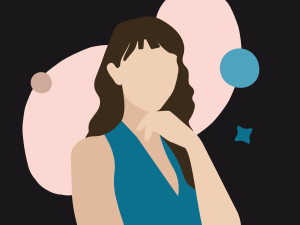
April 30, 2024
Author Ellyce Fulmore struggled with impulsive spending and doing “basic” daily tasks during the pandemic. The pain of coping with that led to her ADHD diagnosis.
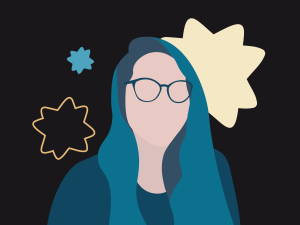
April 16, 2024
ADHD coach Jaye Lin was a gifted kid with undiagnosed ADHD. Now, she’s building communities and helping others cope with ADHD burnout.
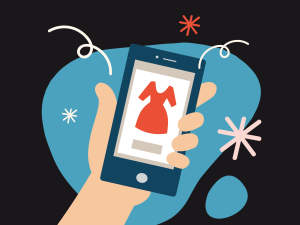
April 2, 2024
Writer Paulette Perhach had money coming in but struggled to keep it in her bank account. An ADHD diagnosis brought her struggles into perspective.
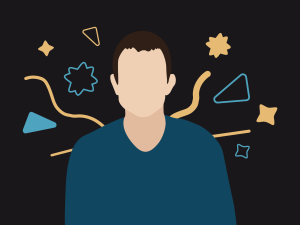
March 19, 2024
Eye to Eye founder David Flink is fighting the “just try harder” myth surrounding ADHD, dyslexia, and other learning and thinking differences.
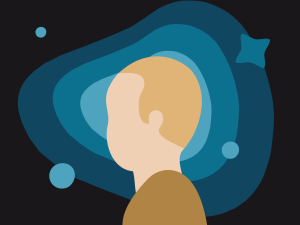
March 5, 2024
Peter Jones used to feel better saying he had a hearing problem rather than considering ADHD. Now, he knows he has ADHD and isn't afraid to say it.
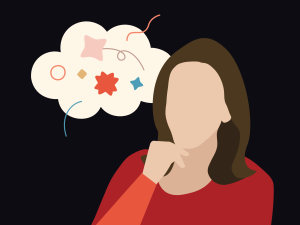
February 20, 2024
Before her ADHD diagnosis, ADHD coach Emily Weinberg thought she was just lazy. But in reality she was stuck in “analysis paralysis.”
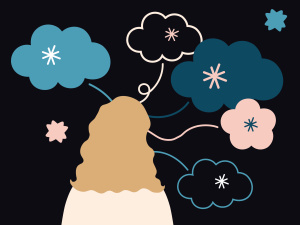
Carol Blumenstein was called an unteachable student. Now, she knows she has ADHD and dyslexia, and supports her five kids who learn differently, too.
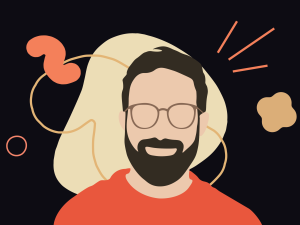
January 23, 2024
Executive coach, actor, and former criminal defense attorney Ernest Anemone shares his ADHD story — and why he questions the term “attention deficit.”
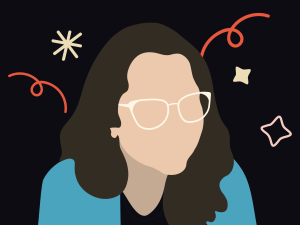
January 9, 2024
ADHD and post-traumatic stress disorder (PTSD) symptoms can look similar. And they can morph into what Hannah calls “a trauma ball of blame.”
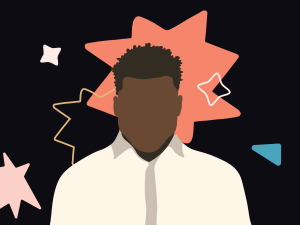
December 26, 2023
Livingston Steele was diagnosed with ADHD about a year into working at Understood.org. His experience and work have given him immense empathy for people with ADHD.
